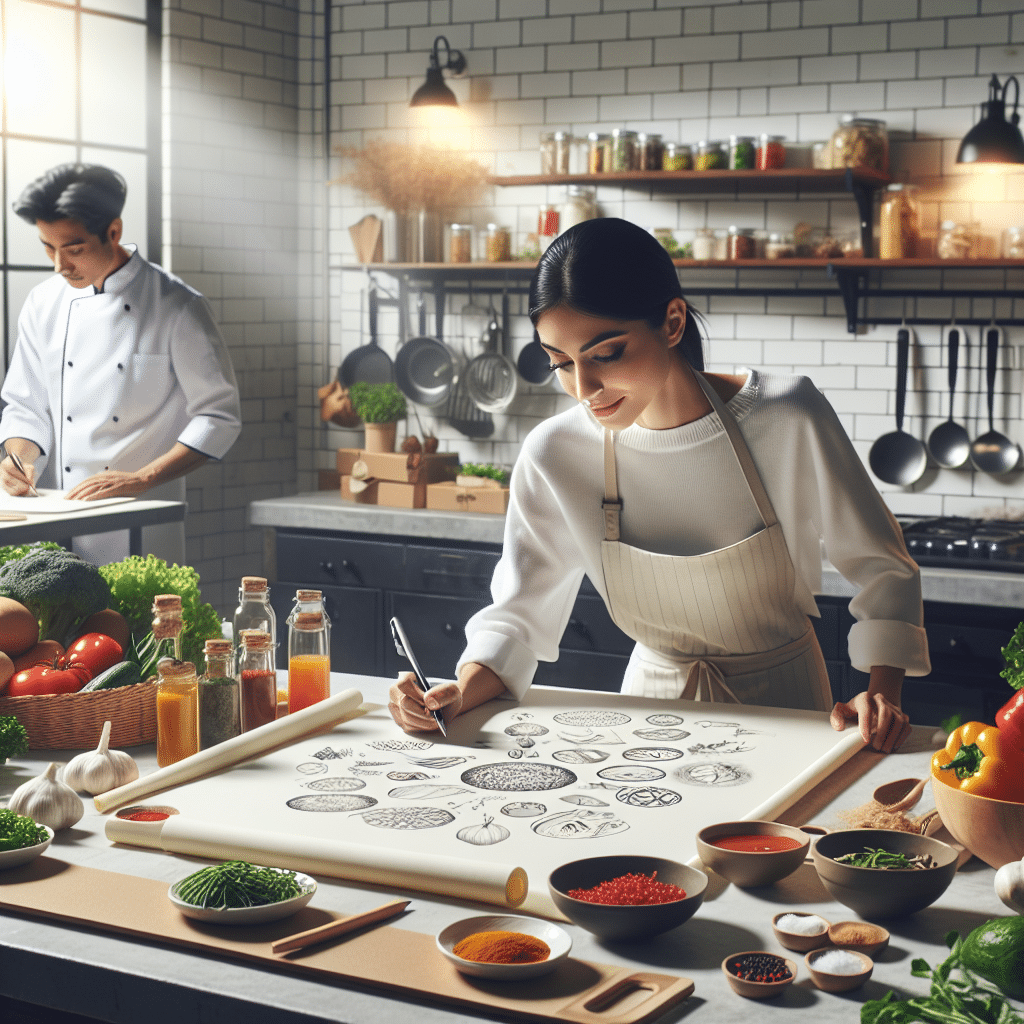Developing Your Creativity Process With Food
Creativity is a cornerstone of human innovation, influencing everything from art to problem-solving. While its origins are often attributed to innate talent or years of practice, creativity thrives in environments that encourage exploration, experimentation, and inspiration. One such environment exists within the culinary world. Food has the power to awaken the senses, stimulate the mind, and spark imaginative thinking. 
By integrating food into your creative process, you can cultivate a fresh perspective and unlock untapped potential.
The Connection Between Food and Creativity
Food is more than sustenance; it is a multisensory experience. From the vibrant colors of a freshly prepared meal to the complex interplay of flavors on the palate, food engages sight, smell, taste, and touch simultaneously. This sensory stimulation creates fertile ground for creative thought.
Mindful Cooking:
Engaging in the act of cooking with intention can be meditative. The repetitive motions of chopping, mixing, and plating can clear the mind, allowing new ideas to emerge organically.
Flavor Pairing as a Creative Exercise:
Experimenting with unexpected combinations of ingredients pushes the boundaries of traditional culinary norms. This process mirrors creative thinking in other fields, where innovation often comes from breaking established rules.
Cultural Exploration:
Delving into cuisines from different cultures introduces new techniques, ingredients, and perspectives. This culinary exploration can inspire fresh approaches to problem-solving in other areas of life.
By viewing food as a medium for expression, you can create a bridge between the tangible and the abstract, allowing your creativity to flourish.
Harnessing Food to Enhance Your Creative Process
The relationship between creativity and food isn’t just theoretical; it can be cultivated intentionally. Here are practical ways to leverage food in your creative endeavors:
Set the Stage with Ambiance
Your surroundings influence your mindset. Create an environment that encourages creativity by incorporating elements like music, lighting, and even aromatherapy. A cozy kitchen or a well-decorated dining space can become a sanctuary for creative work.
Try Hands-On Food Experiences:
Attend a cooking class, host a themed dinner party, or challenge yourself to prepare a dish without a recipe. These activities push you out of your comfort zone and encourage experimentation.
Use Food as a Reward System:
Break large projects into smaller tasks and use a favorite snack or meal as a milestone reward. This not only keeps you motivated but also reinforces positive associations between food and creative achievement.
Incorporate Food-Themed Journaling:
Reflect on your culinary experiences by keeping a journal. Documenting the process of creating or enjoying food can reveal insights into your preferences, habits, and potential sources of inspiration.
The Role of the Brain-Gut Connection
Scientific research underscores the connection between gut health and cognitive function. A healthy gut can enhance mood, focus, and creativity, making dietary choices an integral part of the creative process.
Boost Creativity Through Brain Foods: Incorporate foods known for their cognitive benefits, such as:
- Blueberries: Packed with antioxidants that improve memory and brain function.
- Dark Chocolate: Enhances mood and boosts focus through its natural compounds.
- Nuts and Seeds: Rich in omega-3 fatty acids and vitamins essential for brain health.
- Fermented Foods: Yogurt, kimchi, and other probiotic-rich foods support a healthy gut microbiome, which influences mental clarity.
Stay Hydrated: Even mild dehydration can impair cognitive performance. Infuse water with fruits like lemon or mint for a creative twist on hydration.
Limit Processed Foods: A diet high in refined sugars and unhealthy fats can negatively impact mood and energy levels, stifling creativity.
By aligning your diet with your creative goals, you provide your mind and body with the resources they need to perform optimally.
Transforming Food into a Creative Practice
Creativity thrives when it becomes a habit, and integrating food into your daily routine can turn culinary exploration into a consistent practice.
Create Rituals Around Food: Morning coffee, afternoon tea, or evening cooking sessions can become creative rituals. Use these moments to brainstorm, reflect, or simply recharge.
Host Brainstorming Sessions Over Meals: Sharing food with others fosters connection and collaboration. Invite colleagues, friends, or family to discuss ideas over dinner or lunch.
Engage in Seasonal Cooking: Use the changing seasons as inspiration to explore different ingredients and cooking techniques. Seasonal cooking encourages adaptability and sparks new ideas.
Document and Share Your Creations: Photograph your dishes, write about the process, or share your culinary experiments on social media. This not only helps you build a portfolio of ideas but also connects you with a community of like-minded individuals.
By making food an integral part of your creative process, you’ll not only nourish your body but also fuel your imagination. Each meal becomes an opportunity to explore, innovate, and connect.
Conclusion
Creativity is a dynamic process, and food provides a unique and accessible way to nurture it. From engaging your senses to fostering collaboration and innovation, the culinary arts offer endless opportunities to inspire and elevate your creative thinking. Whether you’re a seasoned artist or someone looking to unlock new perspectives, integrating food into your routine can transform the way you approach challenges and express yourself.
References
- The Role of Food in Creativity
- How Food Influences Mood and Focus
- The Science of Flavor Pairings
- Brain Foods for Enhanced Creativity
- Cultural Influence on Culinary Creativity
- Gut-Brain Connection Explained
- Seasonal Cooking and Creativity
- Mindful Cooking Practices
- Hydration and Cognitive Function
- Social Bonding Over Meals











































